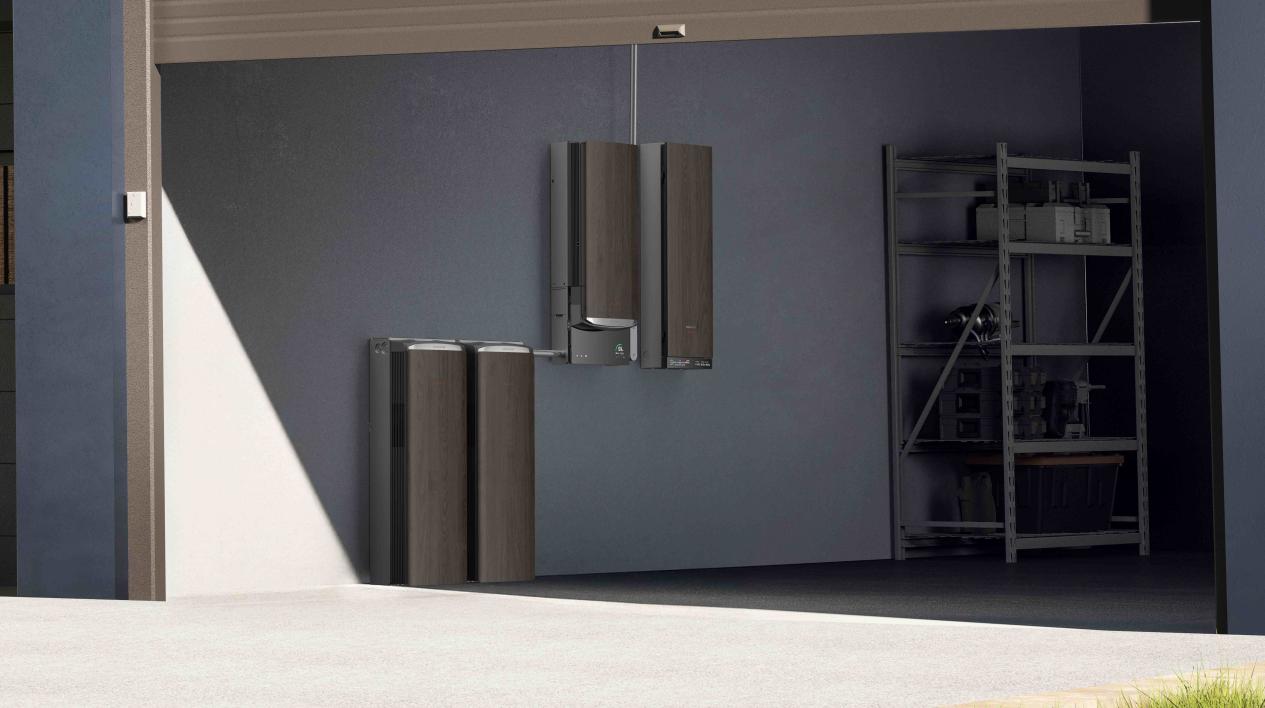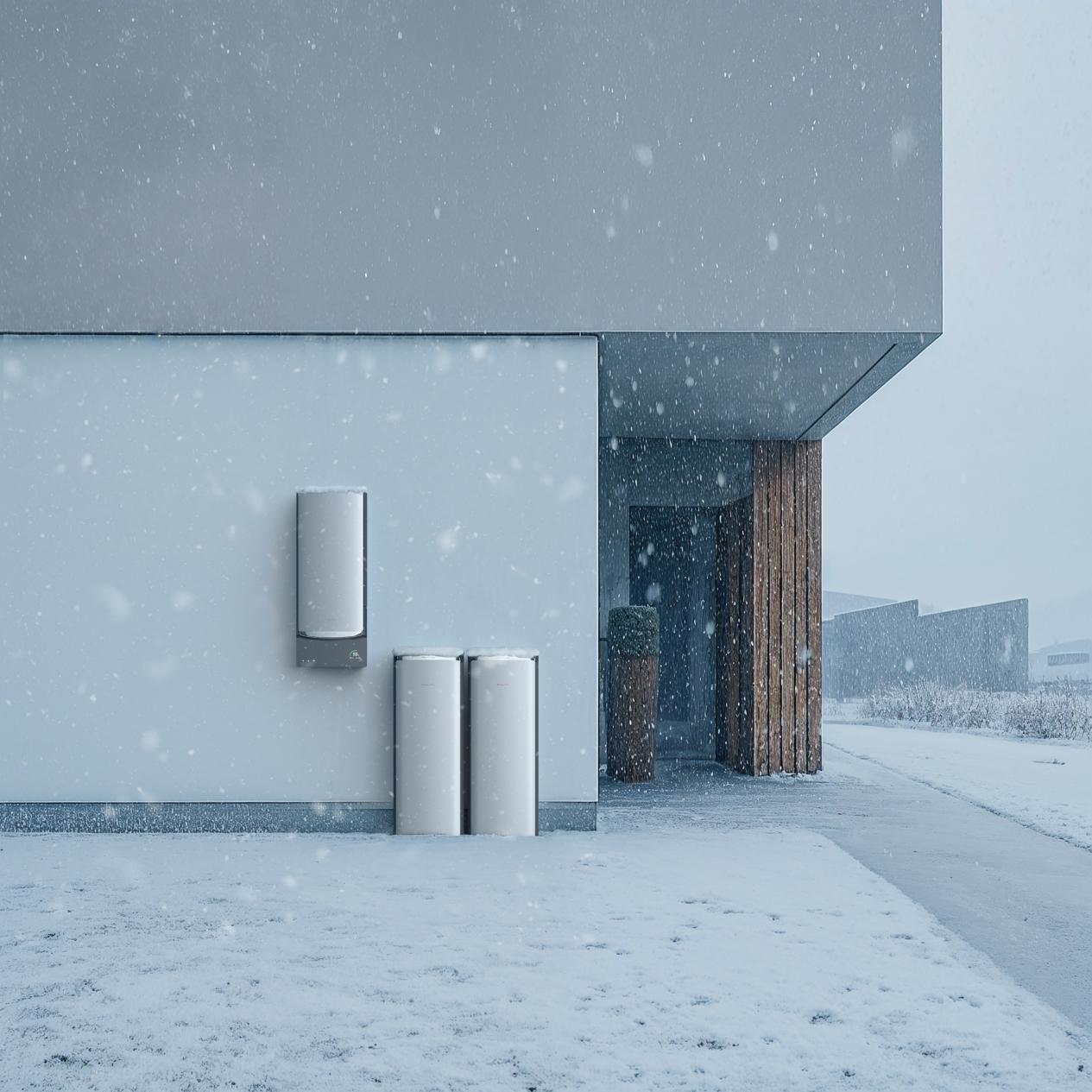Batteries or Generators: Which Is the Best Home Backup Power
A power outage can ruin your plans, stop your appliances, and leave you in the dark—literally. That’s why more people are preparing ahead. If you’re looking to keep your air conditioner running and your fridge cold this summer, you need a strong backup plan. For most homes, the two main choices are battery backup for the home and fuel-powered generators.
What Is a Home Battery Backup?
A home battery system stores electricity. That energy comes from your solar panels or from the regular power grid. When the power goes out, your battery sends energy to the important parts of your home, like lights, Wi-Fi, fridge, or medical devices.
One standout solution is the EcoFlow OCEAN Pro Battery System. It stores large amounts of energy, works with solar panels, and supports the entire home. These systems are quiet, clean, and smart. You can install them on a wall or floor and let them run in the background. They need very little attention.
And if your utility uses a time-of-use pricing plan, batteries can help you save money. They store power when prices are low and use it when rates go up, cutting your bill without changing your habits.
Understand a Generator for Home
A standby generator is a large, fuel-powered machine. It’s connected to your home’s electrical system. When the grid fails, the generator starts up automatically and powers your house.
Generators usually use natural gas, propane, or diesel fuel. Some can switch between two fuel types. If you have a gas line or a large propane tank, the generator can run for days or even weeks, as long as there’s fuel.
Generators are powerful, but they have downsides. They’re loud, need regular maintenance, and release fumes. You’ll also need a proper outdoor spot to install them safely.
Comparing Battery Backup and Generators
Let’s break things down clearly, so you can see which one fits your needs best.
Cost: What Will You Spend?
Battery backup systems cost more up front. A full setup can range from $10,000 to $20,000 or more, depending on how big your house is and how many batteries you need.
But once installed, they’re cheaper to run. You don’t buy fuel. And if you have solar panels, your energy is basically free.
Generators are generally less expensive to install, typically ranging from $7,000 to $15,000. But they need fuel to run. Over the years, those fuel costs can add up. Plus, you may need to pay for regular maintenance and repairs.
🟢 Batteries cost more at the start, but they may save you money in the long run.
Installation: How Hard Is It?
Batteries win here. They can often be mounted to a wall or placed on a concrete pad. Some newer models are as easy to set up as a large power station, but still often with help from a professional electrician. EcoFlow offers a clear edge here. You can choose from a network of certified local installers who know the product and your region’s safety rules. That means faster response times, simpler system design, and shorter installation cycles.
Generators need more work. You’ll need a base slab, fuel hookup, and transfer switch. You’ll also need space outdoors that meets safety rules.
🟢Batteries are easier and cleaner to install, especially for modern homes.
Maintenance: What Will You Need to Do?
Battery systems require almost no maintenance. They’re quiet, don’t burn fuel, and don’t need tune-ups. They just work in the background.
Generators need more care. You’ll need to check oil levels, refill fuel (if not connected to a tank), and service the engine. They also make noise and release exhaust, so placement matters.
🟢Batteries are better if you want a “set it and forget it” solution.


Runtime: How Long Can It Power Your Home?
Generators win here. As long as there’s fuel, they can run for days or even weeks. That’s great in long emergencies, especially in storm-prone areas.
Batteries, on the other hand, have limited energy. Let’s take the EcoFlow OCEAN Pro Battery as an example. A single module stores 10 kWh, but the system can scale up to 80 kWh using stackable units. That means you can back up large appliances like refrigerators, well pumps, or even HVAC systems, depending on how many modules you install.
And if your system includes solar panels, your battery can recharge during the day, extending runtime across multiple days.
Environmental Impact: What’s Cleaner?
Batteries are clean. They don’t burn fuel, don’t produce smoke or carbon monoxide, and are silent. If paired with solar, they help reduce your carbon footprint even more.
Generators burn fuel and release fumes. You’ll also hear them whenever they’re running. For some people, that’s a major drawback.
🟢 Batteries are better for the planet—and your neighborhood.
Warranty and Lifespan
Batteries usually come with a 10–15 year warranty. Over time, their capacity drops, just like a phone battery. With EcoFlow OCEAN Pro, you get a 15-year warranty with long-term reliability, even under tough environmental conditions.
Generators don’t have that kind of warranty. But they can last 20 years or more with good maintenance. You measure their life in hours—about 3,000 running hours for a high-quality model.
🟢 Batteries like OCEAN Pro offer long warranties and need less care over time.
Batteries or Generators: Which One Should You Choose?
Here’s a quick guide:
Your Situation | Best Choice |
You already have solar panels | ✅ Battery system |
You live in an area with frequent long outages | ✅ Generator or large battery like OCEAN Pro |
You want quiet, clean backup power | ✅ Battery |
You need to run heavy equipment or AC | ✅ Generator or high-output battery system |
You don’t want to deal with fuel | ✅ Battery |
You’re on a budget | ✅ Small generator |
Can You Use Both?
Yes, some homes combine both systems. A battery can handle everyday needs and short blackouts. A generator can take over during long storms or extended outages.
Some systems—like EcoFlow OCEAN Pro—are designed to work with solar panels, generators, and even virtual power plants, giving you full control and flexibility.
Spotlight: EcoFlow OCEAN Pro – A New Kind of Battery Backup
If you're looking for a powerful, long-lasting battery system that rivals a generator, don't miss out on the EcoFlow OCEAN Pro. You'll be mightily impressed if you take a look at what makes it different:
Scalable Storage: Start with 10kWh per battery, and expand to 80kWh using stackable modules.
Heavy-Duty Power: With the OCEAN Pro Inverter, you get 24kW continuous output and 50kW peak—enough to start large HVAC systems or water pumps.
Extreme Durability: Certified floodproof up to 3.3 feet, rated IP67 for full dust and water protection, and operates in heat up to 140°F.
Built-In Safety: Comes with fire suppression, explosion-proof valves, and thermal protection.
Smart Energy Use: The system uses AI to monitor energy flow, give smart charging suggestions, and help cut electricity bills by up to 40%.
Long-Term Confidence: 15-year warranty—one of the longest in the industry.
🟢 If you want battery backup with generator-like performance and smarter control, EcoFlow OCEAN Pro is one of the best options available today.


Choosing the Best Home Backup Power
Both battery backups and generators have their place. It all depends on your needs, budget, and home setup.
If you want a clean, quiet system that helps with energy savings and works with solar, batteries are a better pick.
If you need to power your entire home for many days, no matter the weather, a generator is a safe choice.
And if you want the strength of a generator with the smarts and safety of a battery, systems like EcoFlow OCEAN Pro give you the best of both worlds.
The best time to prepare is before the lights go out. Make your plan now—and stay powered all summer long.
FAQs about Batteries and Generators
Q1. Can a battery like EcoFlow OCEAN Pro power HVAC systems during blackouts?
A: Yes. The OCEAN Pro Inverter provides 24kW continuous and 50kW peak power, with 205A locked-rotor current—enough to start and run central air conditioners, heat pumps, or well pumps. This level of surge capacity is uncommon among typical battery backups and rivals generator-level performance.
Q2. What happens during a prolonged outage when solar panels are generating more than I use?
A: If your solar panels produce more power than you consume and your OCEAN Pro battery is full, the extra power can either be curtailed (not used), diverted to secondary loads like water heating, or, in supported regions, exported back to the grid through a Virtual Power Plant (VPP) program. OCEAN Pro supports VPP participation, which lets you earn money from surplus energy.
Q3. Can EcoFlow OCEAN Pro work without solar panels?
A: Yes. While it pairs well with solar, OCEAN Pro can charge from the grid during off-peak hours, then discharge during peak times to reduce your electricity bill. It also integrates with gas generators as a backup input source. This makes it ideal for users who want to transition to solar gradually or live in low-sunlight regions.
Q4. How is the battery protected from extreme weather and disasters?
A: The OCEAN Pro is built for harsh conditions. It’s rated IP67, meaning it’s dust-tight and can handle short-term submersion in water up to 3.3 feet. It withstands heat up to 140°F, and its TriShield Protection System includes an integrated fire suppression module and explosion-proof valve. These make it safe to install in flood zones, attics, or garages exposed to heat or dust.